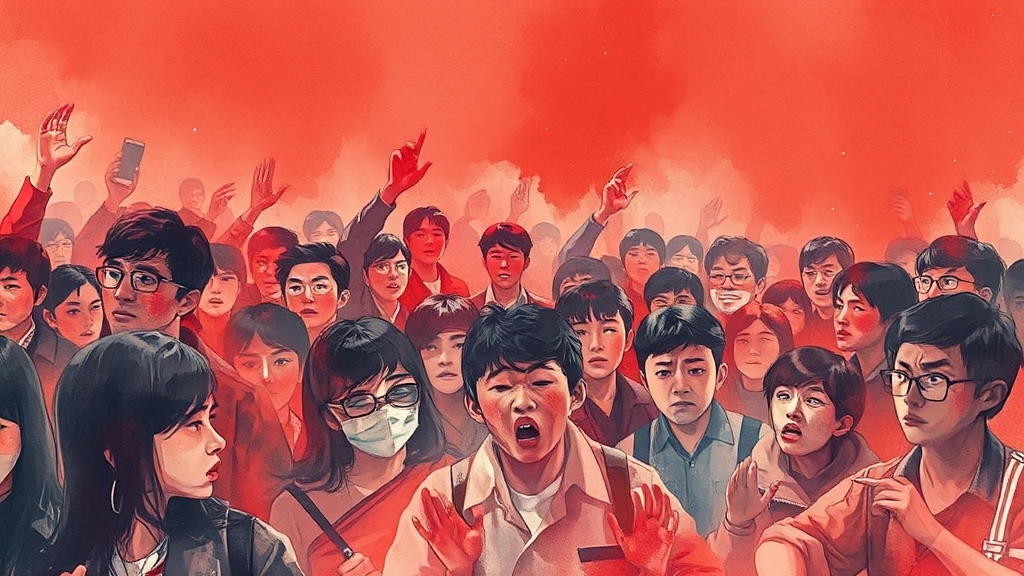
The Cho Kuk Innovation Party is facing its biggest crisis since launch—sparked by sexual harassment allegations, a slow response, and mounting claims of secondary victimization. Former spokesperson Kang Mi-jung leaving the party raised serious questions about leadership, transparency, and political accountability. In this deep dive, we unpack the timeline, key issues, and what this scandal means for Korean politics and the party’s future.
What Happened: Case Overview & Background
The case began when a female party staffer filed a complaint alleging sexual misconduct by a senior member. The fallout quickly threatened the party’s identity as a “reform” force, exposing gaps in governance, organizational culture, and crisis management. Initial steps reportedly included separating the accused from the victim and suspending duties, but critics say victim protection and due process weren’t fully honored, fueling public anger and eroding public trust.
As the controversy grew, some aides who supported the victim faced disciplinary action, while a local party chair was expelled after pushing for reform—events that amplified the perception of internal retaliation and a flawed internal probe.
Former spokesperson Kang Mi-jung then publicly announced her resignation and departure, describing harassment and bullying inside the party and condemning leadership for an inadequate response. Her account spotlighted the need for an independent investigation and a victim-centered process grounded in ethics and accountability.
Kang Mi-jung’s Exit & Whistleblowing

Kang’s departure became a turning point. She accused colleagues of sexual harassment and bullying, condemned party ethics committee procedures as ineffective, and criticized leadership for sidelining victims and allies. She said months passed without meaningful victim support, while requests for an independent inquiry were dismissed—fueling claims of secondary victimization and deepening the leadership crisis.
Kang highlighted power dynamics that allegedly protected the accused, arguing that committee lineups included personal allies, undermining fairness. Reports also cited pressure on complainants—examples that advocates say reflect systemic issues in organizational culture and governance reform needs.
Party Response & Measures Under Fire

While the party says it suspended the alleged perpetrator and later took expulsion steps based on an outside review, critics argue the overall approach failed to center victim safety. Reform-minded voices were reportedly punished, and silence from top leadership drew scrutiny. The gap between press conferences, media statements, and on-the-ground protections became a core reputational risk for the party.
Choi Kang-wook’s Remarks & the Backlash

Comments made by former lawmaker Choi Kang-wook during a party academy talk were widely criticized for downplaying the scandal and hurting victims—fueling accusations of secondary victimization. Party figures called for fact-finding by an ethics oversight unit, but the incident further challenged the party’s commitment to victim-centered solutions and reform.
Gaps in Victim Protection: What Went Wrong

Critics say the party failed to ensure victim protection and prevent retaliation. Concerns focused on committee composition, alleged ties to the accused, and rejection of an independent investigation. These issues strengthened the case for a robust whistleblower framework and trauma-informed procedures in Korean politics.
Political Reactions & What’s Next
Responses across the aisle varied—from calls for stricter ethics and transparency to charges of double standards. Supporters urged a fair fact-finding process; critics framed the scandal as a test of the party’s reform agenda and capacity to rebuild public trust. Bottom line: the party’s trajectory will hinge on credible remedies and clear accountability.
The Party’s Crisis: Challenges & To-Dos

Analysts call this the party’s most severe leadership crisis to date. Beyond individual misconduct, critics cite failures in governance, ethics enforcement, and victim-centered policy. Silence or delays from top figures compounded confusion, clashing with the party’s stated reform agenda and values.
To rebuild public trust, the party would need clear steps: acknowledge harm, launch an independent investigation, protect victims from retaliation, overhaul ethics and complaint-handling protocols, and communicate progress through transparent media statements. Without credible action, the scandal could shape polling, alliances, and long-term viability in Korean politics.
FAQs
Why did Kang Mi-jung leave?
She cited inadequate handling of sexual harassment allegations, attempts to minimize the scandal, and her own experiences—calling for independent investigation and stronger victim protection.
What’s the controversy around remarks by Choi Kang-wook?
His comments were criticized for downplaying the scandal and causing secondary victimization, prompting calls for ethics review and accountability.
Why is the party’s response under criticism?
Despite initial separation measures, critics say victim support was weak, independent inquiry requests were rejected, and allies faced disciplinary action.
How might this impact the party?
Reputation damage, internal rifts, and potential drops in support—unless the party delivers visible transparency, accountability, and governance reform.
What are the must-do fixes?
Victim-centered protocols, independent investigation, anti-retaliation safeguards, stronger ethics systems, and consistent, transparent media statements about progress.

0 댓글